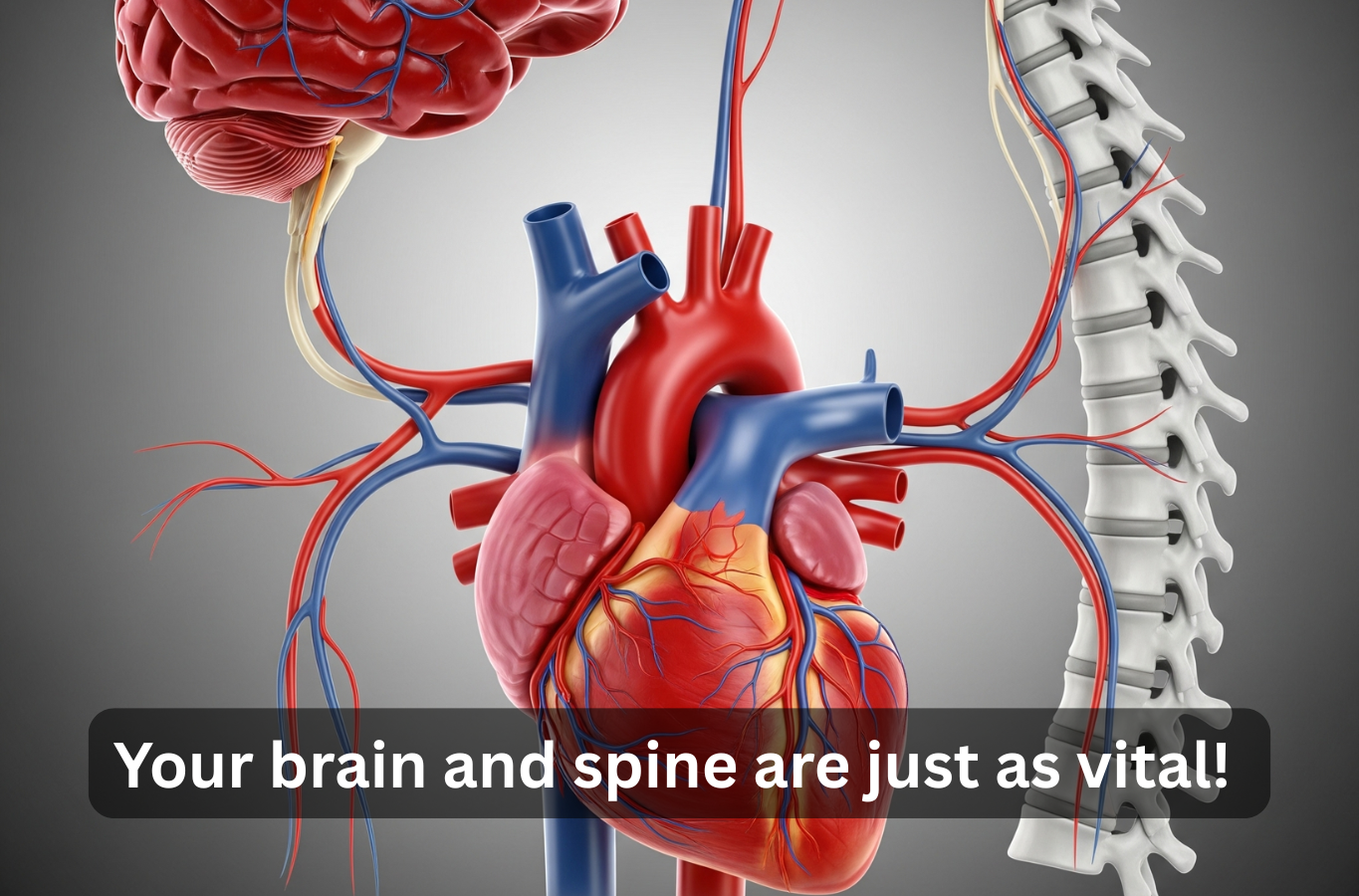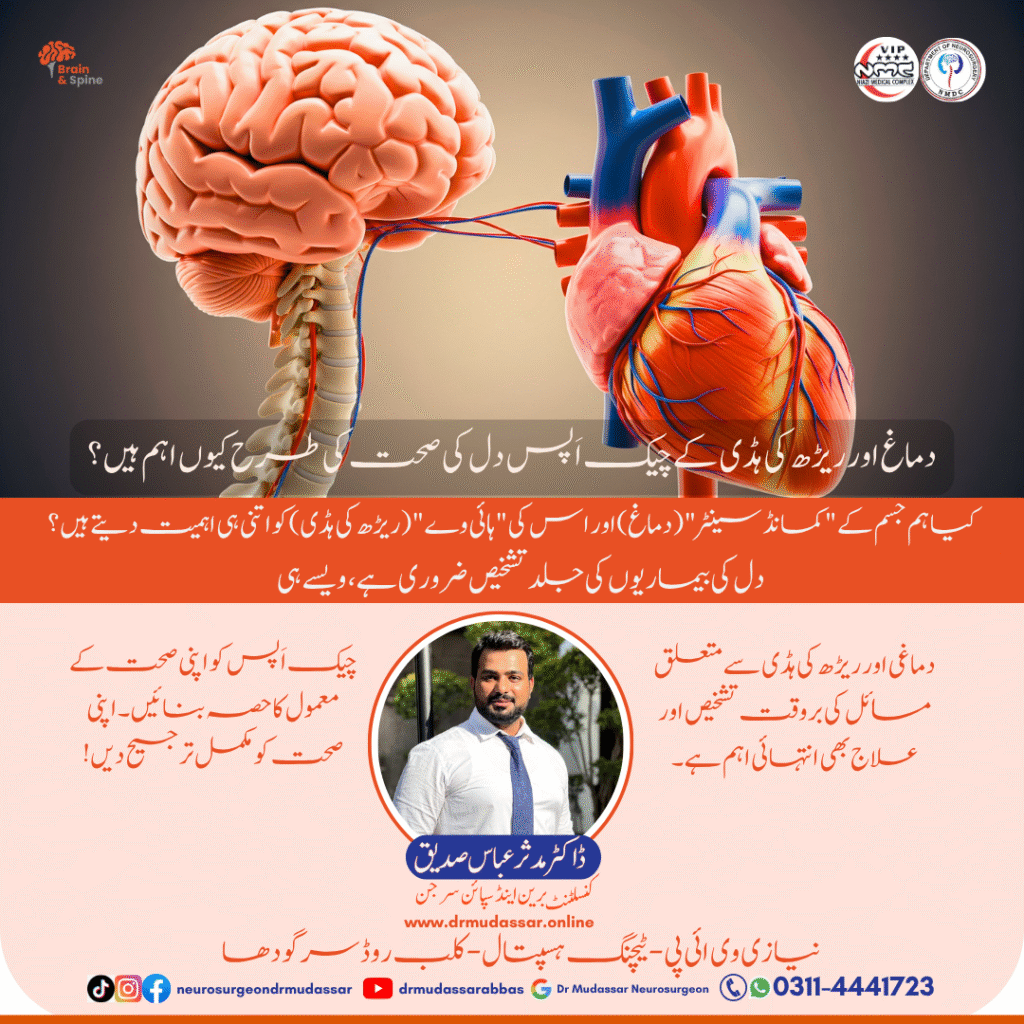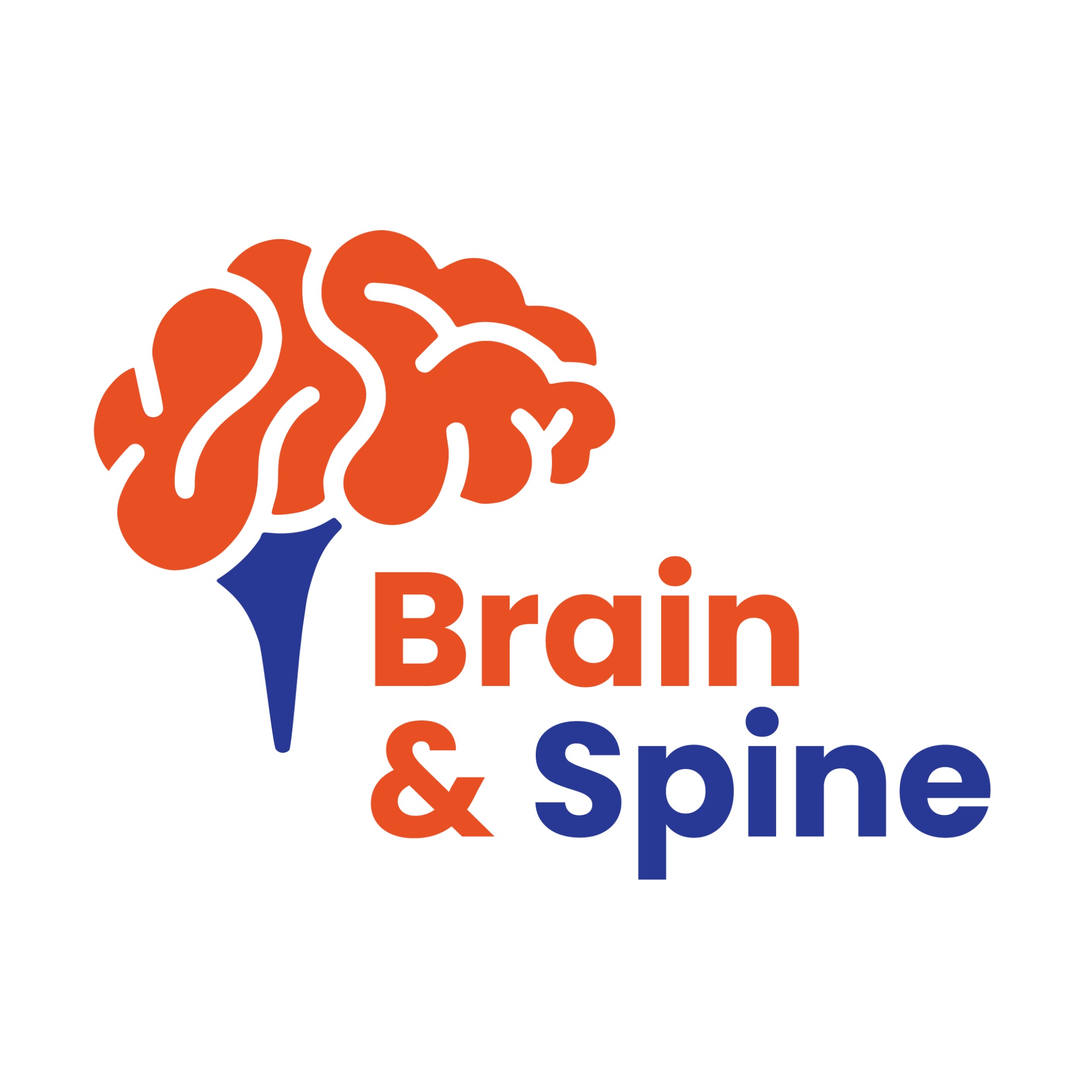
We live in a world where “heart health” is a widely recognized and championed cause. From diet tips to exercise routines, we’re constantly reminded of the importance of keeping our ticker in top shape. And rightly so – heart disease remains a leading cause of mortality. However, in this vital conversation, two other equally crucial organs often get overlooked: the brain and the spine.
It’s time we start viewing brain and spine checkups with the same urgency and importance as we do our cardiovascular health. Here’s why:
The Brain: Your Body’s Command Center
Think of your brain as the central processing unit of your entire body. It controls every thought, every movement, every sensation, and every bodily function, from breathing to digestion. A healthy brain is fundamental to:
- Cognitive Function: Memory, learning, problem-solving, and decision-making all depend on a well-functioning brain. Regular checkups can help detect early signs of cognitive decline, dementia, or other neurological disorders.
- Mental Health: The brain is intricately linked to our emotional well-being. Conditions like depression, anxiety, and other mental health disorders often have neurological underpinnings. Early intervention can make a significant difference.
- Motor Control & Sensation: Your ability to walk, talk, see, and feel relies entirely on a healthy brain and nervous system. Neurological issues can manifest as tremors, weakness, numbness, or loss of coordination.
The Spine: The Superhighway of Your Nervous System
While the brain is the command center, the spine is the superhighway that carries all the vital information between your brain and the rest of your body. Encasing and protecting the spinal cord, it’s a critical component of your central nervous system. A healthy spine ensures:
- Communication: The spinal cord transmits signals that control every organ, muscle, and cell. Any compression, damage, or misalignment in the spine can disrupt these signals, leading to widespread problems.
- Mobility & Support: Your spine provides structural support for your body, allowing you to stand upright, bend, and move freely. Spinal issues can lead to chronic pain, reduced mobility, and even disability.
- Pain Management: Many forms of chronic pain, including back pain, neck pain, and sciatica, originate in the spine. Regular checkups can help identify and address these issues before they become debilitating.
Why Prioritize Brain & Spine Checkups?
Just like heart disease, many neurological and spinal conditions can be progressive. Early detection and intervention are key to managing these conditions effectively, preserving quality of life, and in some cases, even preventing their progression.
- Preventative Care: Regular checkups can identify risk factors, even before symptoms appear. This allows for proactive measures like lifestyle changes, physical therapy, or medication to mitigate risks.
- Early Diagnosis: Catching conditions like multiple sclerosis, Parkinson’s disease, or spinal stenosis in their early stages can significantly improve treatment outcomes and slow disease progression.
- Improved Quality of Life: Addressing brain and spine health proactively means a better chance at maintaining cognitive function, mobility, and overall independence as you age.
- Holistic Health: True health is holistic. Neglecting your brain and spine is like trying to drive a car with a perfect engine but a faulty steering wheel and damaged chassis. All systems need attention.
What Do These Checkups Involve?
Brain and spine checkups can vary depending on your age, risk factors, and any existing symptoms. They may include:
- Neurological Examination: Assessing reflexes, coordination, balance, sensation, and cognitive function.
- Imaging Tests: MRI or CT scans may be used to get detailed images of the brain and spine if a doctor suspects an issue.
- Electrophysiological Tests: Such as EMGs or EEGs to assess nerve and muscle function or brain electrical activity.
- Consultation with Specialists: Referral to a neurologist, neurosurgeon, or chiropractor if needed.
Make Brain & Spine Health a Priority
It’s time to expand our definition of crucial health checkups to include our brain and spine. Talk to your doctor about incorporating these assessments into your regular health routine, especially if you have a family history of neurological conditions, experience persistent headaches, numbness, weakness, or chronic back/neck pain.

Your brain and spine are invaluable. Give them the attention and care they deserve – your future self will thank you.

